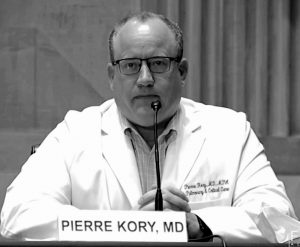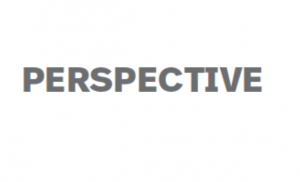Now that the campaign to vaccinate the planet for COVID-19 is well underway, news of effective, affordable treatments—and deterrents—is finally coming to light. Studies on ivermectin, colchecine and hydroxychloroquine, published in the US, Spain, India, Iran, Egypt, Argentina and elsewhere indicate that these drugs, used prophylactically and in early and late treatment, can greatly reduce severity of COVID-19 symptoms, reducing hospitalization and mortal outcomes. Their modest cost makes these medications a potential option for those who cannot afford lengthy hospital stays and the lost wages they entail.
Doctors have the power to prescribe “off label” medications
Because these drugs are approved by the FDA, doctors can prescribe them when they judge it medically appropriate for a patient. Physicians do not need permission from the National Institutes of Health, the World Health Organization or the Centers for Disease Control for “off label prescribing” which is common and legal. According to the Agency for Health Care Research and Quality, one in five prescriptions written by doctors today is off label.
Emerging information supports the benefits of simpler treatments
Thanks to an insistent campaign by courageous researchers and medical professionals around the world, news of the safety, efficacy, and affordability of ivermectin and other treatments is finally entering public discourse. These highly educated and credentialed doctors have shared their research with legislators, held public press conferences, and posted their findings to various social media channels and continue to do so at considerable risk to their professional reputations.
Doctors from Frontline COVID-19 Critical Care Alliance (FLCCC) testified before Congress in December 2020, asking that their findings on ivermectin, specifically, should immediately become available for EUA (Emergency Use Authorization) by the FDA.
President of FLCCC, Dr. Pierre Kory, a lung specialist with experience in Intensive Care medicine, told the Senate Committee on Homeland Security and Governmental Affairs that ivermectin was essentially “a miracle drug” when used to combat COVID-19. Dr. Kory and his colleagues requested the data he shared be released promptly to save lives. Their request was ignored by the committee and barely mentioned in the news. Shortly thereafter, some of these doctors’ social media accounts were deplatformed, their reputations disparaged and their message discoverable only to the most diligent online investigators.
Why you haven’t heard of the treatments
Pharmaceutical corporations are estimated to be the largest, most influential for-profit conglomeration on earth. They fund university chairs and endowments, make the highest allowable contributions to political candidates, and comprise the largest lobby in the United States. They “advise” governments and their leaders sit at the highest levels of corporate boardrooms. It is also well-known they don’t like competition. In 2017, philanthropist and noted advocate for affordable health care, Gary West, wrote that:)
“The US healthcare industry keeps prices artificially high and competition low, operating by the dictionary definition of a cartel: ‘an association of manufacturers or suppliers with the purpose of maintaining prices at a high level and restricting competition.’”

Pharmaceutical corporations are rarely held accountable for their practices, making the recent McKinsey case particularly instructive: Just last month the drug manufacturer agreed to a $573 million settlement as proof came to light they continued to push their money-making opioid, OxyContin, to drug reps and physicians despite a national crisis of addiction and deaths resulting from over prescription of the drug.
It’s not surprising, then, that at least one pharmaceutical giant, Merck, refuses to acknowledge any of the more than 18 independent studies on the safety and efficacy of ivermectin, stating on their website there is “no scientific basis” and “no meaningful evidence” for using the drug as treatment for COVID-19. And while the National Institutes of Health modified their original stance in January 2021, they still withhold outright endorsement of ivermectin, citing the “need for more research,” a tactic often employed to cast doubt on legitimate inquiry, notably making no reference to the studies.
News media colludes with Big Pharma
According to public watchdog groups, the pharmaceutical industry spent almost $4 billion on television advertising in 2018 (not counting online outlets). Undoubtedly, annual revenues from such an arrangement assure the continued existence of major networks, offering a reasonable answer as to why information on affordable, safe and effective treatments for COVID-19 continues to be minimized by the press.
A recent article from CNN’s website reports that, after high COVID-19 death rates, India now has one of the lowest mortality rates on record. Could it be the dry, hot weather, they ask? A concerted government mandate for wearing masks in public? Other hygiene measures?
What the article fails to mention is that by June 2020 India had adopted wide scale use of hydroxychloroquine and ivermectin (a few months later) as compelling research emerged.
Avoidable physical and financial suffering
Take the case of “Joe,” an Olympia-based Licensed Practical Nurse, who tested positive for COVID-19. Despite following his doctor’s suggestion to stay home and drink plenty of fluids, his symptoms worsened, and he requested hydroxychloroquine or ivermectin. Although it was within her power to do so, his doctor refused to issue the prescription, stating it was outside Kaiser protocols to prescribe those drugs.
When his oxygen levels dropped dangerously and he became extremely ill, Joe was taken by ambulance to Providence Hospital, where, over the course of three weeks, he required full-time, machine-generated oxygen to stay alive and keep his blood oxygen at maximum saturation. Joe was so sick and frightened during this time he requested that his last will and testament be drawn up.
When he showed no improvement after 9 days, his family asked that ivermectin be prescribed, along with supplements quercetin and Vitamin D3. The inquiring family members were chided for “reading the internet” and told that such treatments were unnecessary. When one doctor eventually agreed to test Joe’s Vitamin D levels, the results were low and he was given high doses of Vitamin D3 for the remainder of his stay.
Joe eventually recovered enough to return home, but continued to need oxygen for three weeks following his release. Insurance covered his hospital bills but not his lost work time. How much time, money and fear could have been spared had the requests for ivermectin been granted?
Is the goal public health or a healthy bottom line?
Pharmaceutical corporations counter suggestions for simpler, more affordable alternatives to their products by claiming they “need more study,” or worse, questioning the integrity of anyone who dares to disagree with their pronouncements. They are silent when the same argument is applied to their own behavior, especially when a new product is poised to yield staggering ongoing revenues. A compromised news media guides the national narrative to clamor for a vaccine that has no long-term studies, suggesting that shareholder profits may be more important to these corporations than preventing death and suffering from ordinary Americans. Food for thought as you wait in line for a jab.
Author’s note: Scant information on these treatments is to be found through search engines like Google and Bing and some of that is misleading. The FLCCC doctors referred to in this article are not the group known as ‘America’s frontline doctors’ who also take a position on ivermectin. For a fair assessment of the FLCCC message, we suggest visiting http://brandnewtube.com/watch/ask-the-experts-ii-oracle-films-covileaks-2021-bbc-panorama-response_OvssgcJXMblheFt.html. As stated above, both ivermectin and hydroxychloroquine require a prescription in the United States.
Bruce Larson has been collating research studies on COVID-19 for the last year. Lori Lively is Assistant Editor at Works in Progress and former editor of Sound Outlook natural health magazine. Supporting links to studies and research data are available by contacting them through WIP at olywip@gmail.org.

Be First to Comment